Research studies in the area of substance abuse often lead to new strategies for treatment, or the tossing out of treatments that are proven ineffective. Research is also used to show how trends in the use of certain substances change over time, or among different segments of the population. Public policy requires information that accurately reflects the trends in substance use in order to establish laws and regulations that discourage substance abuse. A study illustrates the inaccuracies that plague state reporting agencies when determining the cause of death in a traffic accident.
According to the study by National Institute on Alcohol Abuse and Alcoholism (NIAAA) researchers there were more than 450,000 U.S. traffic deaths between 1999 and 2009. In many of these cases alcohol was involved but was not referenced on the death certificates as cause of death. While correct causes of death on death certificates may seem trivial, injuries remain the leading cause of death in the U.S. for individuals under the age of 45, according to the Centers for Disease Control and Prevention.
Importance Of Understanding Alcohol’s Role In Car Accidents
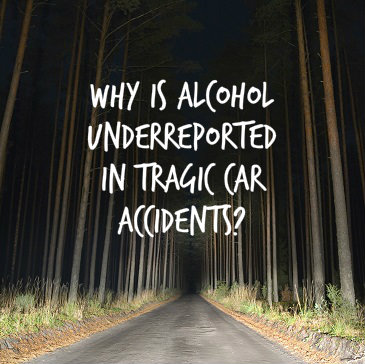 Study leader Ralph Hingson, Sc.D. of the NIAAA stresses the importance of having a clear understanding of alcohol’s role in the leading cause of death for an age group. Only with correct information can officials determine whether policies aimed at reducing alcohol-related deaths are effective. The size of the problem must be measured, tracked and then assessed in order to best create prevention and intervention measures.
Study leader Ralph Hingson, Sc.D. of the NIAAA stresses the importance of having a clear understanding of alcohol’s role in the leading cause of death for an age group. Only with correct information can officials determine whether policies aimed at reducing alcohol-related deaths are effective. The size of the problem must be measured, tracked and then assessed in order to best create prevention and intervention measures.
The researchers started by looking at all traffic deaths because the records are more accurate when compared with other types of accidental death. In approximately half of all U.S. states there is a requirement that the fatally injured driver be tested for blood alcohol levels. This information is then entered into the National Highway Traffic Safety Administration’s Fatality Analysis Reporting System database. The database results were then compared with death certificates from across the U.S.
The researchers found that the role of alcohol in traffic deaths in the decade studied was significantly underreported. Only three percent of the death certificates listed alcohol as a contributing cause of death, while the database rated 21 percent of deaths as legally drunk.
States Reporting Alcohol In Accidents Differs – Importance Of Best Practices
The findings were not consistent from state to state. In some states alcohol was rarely included on death certificate information, such as in Maryland, New Hampshire, Nevada and New Jersey. Other states, including Iowa, Minnesota, Kansas and Delaware, were better about accurately reporting alcohol’s role in the death.
The researchers noted that the discrepancy in reporting could be due to long waiting periods for receiving blood alcohol level test results. In most cases a coroner or medical examiner is required to file a death certificate within three to five days, which may be sooner than a toxicology report can be received.
The researchers stressed the importance of determining which practices are followed by states that seem to be reporting more accurately. Establishing best practices for other states to follow may make reporting on traffic fatalities involving alcohol more accurate.
Having laws in place requiring alcohol testing did not seem to result in better reporting. However, Hingson says that the results illustrate the wide gap between the number of accidental deaths related to alcohol consumption and those that are reported.
Even in our connected and technological age, stigma persists about drug addiction. Parents may not want to believe that their child could become a drug addict, and there is still much misunderstanding about things such as prescription drug abuse and its risks. Education is a vital approach for dealing with this stigma and these prevalent misconceptions, and a recent forum held by the Council on Addiction Prevention and Education (CAPE) and the Wappingers Central School District (Dutchess County, New York) is a perfect example of the value of the approach. The increasing rates of drug abuse in Dutchess County is of great concern to politicians and local experts, and the success of the mid-March program by the Wappingers school district has led numerous other districts to plan similar events in April, with the aim of curbing the growing issue.
What Happens At Drug Abuse Forums?
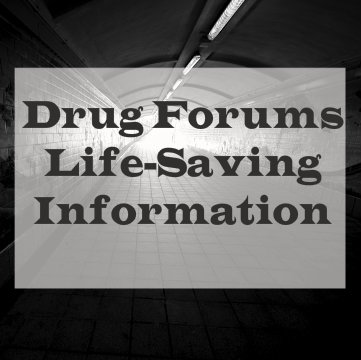 Drug abuse forums give those with direct experience of addiction and the process of recovery to share their stories, offering educational messages to the audiences, who are often teens but could also include their parents and members of the local community. This allows those in attendance to understand the sheer scope of the harm caused by drug abuse and addiction, and although not all of the stories end positively, many offer hope to those struggling with addiction by showing that recovery is possible. Talks will either be given by the ex-users themselves or by family members or loved ones. Due to their emotional nature, they are frequently poignant, moving and memorable.
Drug abuse forums give those with direct experience of addiction and the process of recovery to share their stories, offering educational messages to the audiences, who are often teens but could also include their parents and members of the local community. This allows those in attendance to understand the sheer scope of the harm caused by drug abuse and addiction, and although not all of the stories end positively, many offer hope to those struggling with addiction by showing that recovery is possible. Talks will either be given by the ex-users themselves or by family members or loved ones. Due to their emotional nature, they are frequently poignant, moving and memorable.
Lessons Learned The Hard Way
The event held in March featured many such stories told to a full auditorium at John Jay Senior High School. This was partially thanks to a new initiative on the part of high school coaches that makes attendance mandatory for student athletes, an approach praised by CAPE. The talks cut through the stigma surrounding addiction and showed that the process is very much one of “learning lessons the hard way.”
One speaker was Suzanne DeCosta, who spoke about her son’s addiction to narcotic painkillers and heroin. She described him as “smart, funny and lovable,” but during his teen years, what was once recreational drug use turned into addiction. DeCosta comments that “as a parent, you don’t ever want to believe your child is an addict,” but points out that this is wishful thinking—it can happen to anyone. Her son Michael overdosed on heroin, and has had numerous stretches in rehab. At present, he is two years sober, but the family is more than aware that it will require continued effort on his part to stay in recovery. They say they’re lucky to have him alive.
Other stories didn’t have the same positive, uplifting ending: Marcia Grant’s son, Roger, died at the age of 41 from a heroin overdose in a motel room. She described her son in his youth as “bright” and “affectionate,” but added that he was impulsive and reckless, pointing out that he broke a lot of bones. Doctors advised them that he would experience a lot of pain, and Marcia says they were right, “Pain, both physical and emotional […] kept bringing him back to drugs.”
The first signs of a problem came in his teen years when Roger’s grades began to slip and his behavior changed notably. He started to lie and his moods changed, and eventually—at the age of 22—he admitted to his issues and his parents tried to get him help. He was in and out of rehab centers, attending 11 inpatient programs, but would only have brief periods of sobriety and stability. He almost overdosed several times, and got into trouble with the law through his addiction. “At the time we didn’t realize that there was no simple fix,” said Martha. She added that he’d wanted to warn children about the risks of drugs, and she wanted to pursue this goal for him, in his absence.
Why These Events Are Essential
Drug education is vital, but dry repetition of statistics, risk ratios and far-off consequences don’t always pack much of a punch, particularly from an emotional perspective. The stories shared at drug abuse forums provide evidence for the potential consequences, but also offer a personal insight into the nature of addiction and the difficulties faced in recovery. The stories are real, told by somebody at the center of it all, and have more power to capture the attention of teens as a result. The consequences of drug abuse might not come immediately, but these speakers remind teens and parents that they do come eventually. If you don’t learn the lessons now and try to get clean, the problem will snowball until you’re forced to learn them the hard way. As more of these messages get out, fewer teens will need to learn them from life-threatening, first-hand experience.
Have You Talked To Your Teen About The Dangers Of Inhaling Alcohol?
Denial is a classic hallmark of addiction. Addicts cause themselves harm, they damage relationships with people they love, they get into legal trouble and financial trouble as well, and yet many will claim not to have a problem with drugs or alcohol. This is called denial, and while it is not a part of every addict’s arsenal, it is a very common defense mechanism. Until the veil of this denial can be lifted, an addict is unlikely to get help. By recognizing the signs of denial you can learn to help your loved one come to the realization that he needs help.
Is It Denial Or An Outright Lie?
 Lying is a conscious act meant to deceive. Your loved one may lie to you all the time. Lying is another defense mechanism used by addicts. To hide just how bad the problem is, he may lie to you about any number of things. To be in denial, however, is different. If your loved one is in denial, he truly believes that he doesn’t have a problem. It is frustrating to deal with an addict in denial, but realize that he is not trying to hurt you. He simply can’t see the extent of his problem.
Lying is a conscious act meant to deceive. Your loved one may lie to you all the time. Lying is another defense mechanism used by addicts. To hide just how bad the problem is, he may lie to you about any number of things. To be in denial, however, is different. If your loved one is in denial, he truly believes that he doesn’t have a problem. It is frustrating to deal with an addict in denial, but realize that he is not trying to hurt you. He simply can’t see the extent of his problem.
What Is Denial?
There are several different forms that denial can take. If you are dealing with someone who is in complete denial about his problem, he is totally oblivious to the harm that his drinking or drug use is causing. You may also be dealing with a case of partial denial. Addicts who only partially believe they have a problem may recognize that their drug use or drinking is a bad habit, but may deny the issues it is causing. Perhaps the most harmful type of denial occurs when the addict fully admits to having a problem, but denies needing any alcohol abuse help.
How Can You Recognize Denial?
Addicts are very good at behaving as if everything is fine. They strive to hide the damage that their addictions cause and present a normal face to the world. If you think your loved one is in deeper than he is letting on, look for signs that he is in denial of the severity of his problem. For instance, addicts in denial do a lot of rationalizing. He makes excuses for why he drinks or uses drugs. Maybe he says that he needs to drink after work to decompress.
Those in denial also tend to minimize their problems. Without even realizing that he is being untruthful, your loved one may tell you he had just two drinks at the bar, when he really had five. Avoidance is another denial strategy. Addicts sometimes withdraw from and avoid loved ones so they don’t have to have conversations about their behaviors. Also look out for blaming and bargaining. If your loved one blames external forces, even you, for his problem, he is in denial. He may bargain with you to let him have a few drinks if he promises not to drink the next day.
Addicts are good at denial. They deny their problem to others and to themselves. They get so good at it that denial becomes another unhealthy habit and a roadblock to getting help. If you think your loved one needs help, avoid falling into the trap of believing his denials. Trust your instincts and do your best to help him see what you see. If you fail to convince him, bring in other people who care about him and consider hosting an intervention. Addiction is a serious disease, you need to break through denial in order to get treatment and find success in recovery.
Read More About How You Can Help Someone With An Addiction
13 Mar 2014
Pregnant And Addicted – What Now?
Battling addiction and striving to achieve sobriety are some of the most difficult challenges a person can face. Addicts have to suffer through terrible withdrawal symptoms while detoxing, go through therapy and rehab and then face a lifelong struggle with the prospect of a relapse. Now imagine facing this demon while pregnant; it is the struggle that too many women encounter. Along with the difficulty of coming clean, they face the shame and embarrassment, the possibility of losing their children and unique health challenges. Getting sober is essential for the health of the mother and the baby.
What Are The Barriers To Treatment For Expecting Mothers?
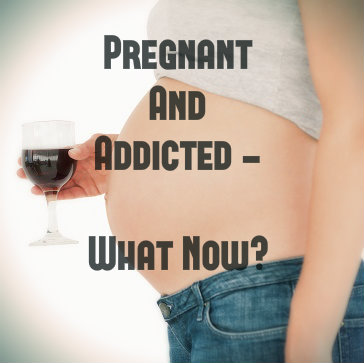 For many women who find themselves both addicted to drugs and unexpectedly pregnant, the idea of getting help is a daunting one. Women in this position tend to feel extreme guilt, shame and fear. A pregnant woman needing addiction treatment may avoid getting help for fear of being judged and vilified. She may also face the fear of losing her newborn after admitting to being an addict.
For many women who find themselves both addicted to drugs and unexpectedly pregnant, the idea of getting help is a daunting one. Women in this position tend to feel extreme guilt, shame and fear. A pregnant woman needing addiction treatment may avoid getting help for fear of being judged and vilified. She may also face the fear of losing her newborn after admitting to being an addict.
What addicted pregnant women need is compassionate care from doctors and other health professionals who understand the special needs of these patients. Without care, these women and their children will suffer. For instance, some women may try to take the matter into their own hands and quit cold turkey, which can actually be harmful to the baby.
The Consequences Of Addiction On The Fetus
For the unborn child, the consequences of a mother’s addiction can be serious. The baby will most likely be born with neonatal abstinence syndrome. This is a collection of symptoms caused by the drugs the mother uses. The baby is born addicted and then experiences withdrawal. Symptoms may include blotchy skin, poor feeding habits, irritability, diarrhea, high-pitched crying, seizures, insomnia, slow weight gain, fever, sweating, trembling and vomiting. Withdrawal in the baby is not the only concern; drug use can lead to complications during labor and delivery.
Pregnant Addicts On The Rise – Finding Solutions
As the number of people in the U.S. addicted to opioids (prescription painkillers and heroin) rises, the number of mothers and infants affected also rises. Statistics indicate that the number of babies born with neonatal abstinence syndrome has more than doubled in the last six years. In 2012, nearly 6 percent of pregnant women were using illegal drugs. The increases are being seen across the country and among all demographic groups. The healthcare costs are rising with the number of addicted babies.
Healthcare professionals are stepping up and looking for solutions to treating these women and their babies. With compassion and tested methods for treatment, they can help women feel comfortable asking for help with addiction. More hospitals and addiction centers are offering specialized care for pregnant women as the problem grows. Although many experts in the past have considered use of maintenance drugs, like methadone, to be bad for the unborn child, doctors now know that maintenance is often the best option. Withdrawal in the pregnant mother can be very dangerous for the baby.
Many of these new programs include not just cutting-edge treatment for addiction in the mother, but also the goal of continuing that care after the baby is born to ensure the mother has the best chance of staying sober and caring for her children. The programs also include plans for reducing complications during delivery and maximizing the odds of having a healthy baby. Many plans also help these new mothers with family planning and parenting skills, as well as long-term care for themselves and their children. With good care that is specialized for their needs, pregnant women have hope for a successful birth and healthy child.
Read More About Drinking During Pregnancy And Find Out Why Women Continue To Drink
Social support is the general term for the connections we develop and maintain between family members, friends and other loved ones or more distant acquaintances. Generally speaking, people with highly developed forms of these connections have an increased ability to withstand daily and traumatic stresses and cultivate a sense of mental/emotional well-being. In a study published in February 2014 in the journal Alcoholism: Clinical & Experimental Research, researchers from Purdue University explored the impact good social support has on the genetic and environmental risks for developing a diagnosable case of alcohol abuse or alcoholism.
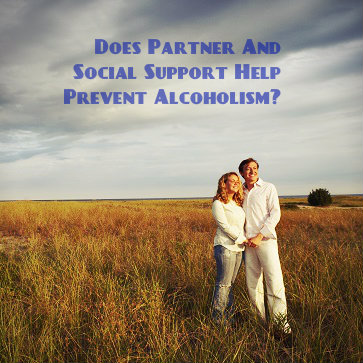 Benefits Of Social Support Networks
Benefits Of Social Support Networks
Social support networks can involve many people or just a few. In addition, they can form in informal settings such as friendships, blood relationships or intimate partnerships, or in more formal settings such as clubs, churches, associations or other organizations. Forms of support that can come from belonging to a given network include emotional support, physical or material support and the support provided by sharing various types of valuable or relevant information. In addition to improved stress resistance, current evidence indicates that people who can consistently rely on their social support networks experience benefits that include reduced risks for chronic illness, higher rates of survival when chronic illnesses strike and increased access to important resources and opportunities.
Genetic And Environmental Risks For Developing Alcohol Use Disorder
People who consistently misuse alcohol significantly boost their chances of developing alcohol use disorder (the modern-day term used to describe the symptoms of both alcohol abuse and alcoholism). Any given person’s overall odds for experiencing this disorder stem from both genetic and environmental factors. Broadly speaking, genetic factors come from inherited changes or alterations passed on through a person’s DNA, while environmental factors include all influences that first arise after a person is born.
The National Institute on Alcohol Abuse and Alcoholism reports that about half of all known risks for alcoholism are genetic in nature. Instead of acting in simple, entirely predictable ways, the inherited chances of developing alcoholism interact in any given individual and produce unique hereditary risk profiles. Similarly, environmental factors have a complex, overlapping impact on alcoholism risks rather than acting in completely predictable patterns. Despite the level of uncertainty involved, researchers and doctors can typically look at a person’s combined genetic and environmental risk factors and roughly determine his or her chances of developing diagnosable alcohol-related problems.
Impact Of Social Support On Risks For Developing Alcohol-Related Issues
In the study published in Alcoholism: Clinical and Experimental Research, the Purdue University researchers used an examination of 672 sets of adult twins to determine the impact of social support on both the genetic and environmental risks for developing alcohol-related issues. They conducted this project because very little research had been done on the alcohol-related effects of social support, in particular. Specific forms of social support under consideration included family-based support, friend-based support and the support provided by an intimate partner. The researchers used a sophisticated form of analysis to separate the effects of genetic influences from the effects of environmental influences in each study participant.
Intimate Partner Support And Impact On Alcohol Abuse
After reviewing their findings, the researchers concluded that, in any given individual, the mixture of genetic and environmental factors for alcohol-related problems varies according to how much social support that person gets from an intimate partner. Specifically, people with low levels of intimate partner support are affected by environmental factors more often than genetic factors, while people with high levels of intimate partner support are affected by genetic factors more often than environmental factors. The researchers also concluded that the presence of strong social support from a friend or family member does not have any substantial effect on the genetic and environmental risks for alcohol abuse or alcoholism.
Determining If Someone Will Be Susceptible To The Environmental Factors That Contribute Alcohol Problems
The authors of the study published in Alcoholism: Clinical & Experimental Research believe they have identified a potentially critical aspect of the underlying equation that helps determine if a person will be susceptible to the environmental factors known to contribute to the development of diagnosable problems with alcohol consumption. Specifically, they note the importance of knowing which types of social support reduce environmental risks. In the future, doctors may be able to use measures of social support to increase their ability to predict the eventual onset of alcohol use disorder in their patients.
Read More About 12 Step Programs – A Guide For Families Of Addicts
04 Feb 2014
How Is Your Drinking Impacting Your Kids?
You don’t have to be an alcoholic for your drinking to have a negative impact on your children. When you drink too much, there are numerous ways in which your children are affected. You are shaping their attitudes toward alcohol and drinking, but you also may become a different person when you drink. Your shifting moods, your time devoted to drinking, your use of alcohol to temper your emotions; all of these impact your children.
Does My Drinking Determine If My Child Will Drink?
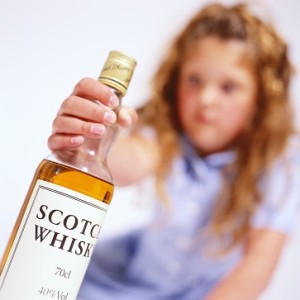 Everything you do and say helps to shape your child’s outlook on life and how he relates to the world. What you do—your actions—are far more impactful than what you say. If you lecture your children on the importance of drinking in moderation and then regularly go off the deep end with your own drinking, the latter is what they really notice.
Everything you do and say helps to shape your child’s outlook on life and how he relates to the world. What you do—your actions—are far more impactful than what you say. If you lecture your children on the importance of drinking in moderation and then regularly go off the deep end with your own drinking, the latter is what they really notice.
According to research, the best way to positively impact your children’s future drinking habits is to limit their exposure to alcohol. When you demonstrate that drinking excessively is fun and normal, your children will most likely adopt the same attitude.
Does My Drinking Affect My Children Emotionally?
Your drinking can have a strong impact on the emotional states of your children. A wide range of feelings are stirred up in your children when you have had too much to drink: embarrassment, sadness, anger and perhaps worst of all, helplessness. When you drink too much, you get out of control, whether you are a happy or a hostile drunk. Your children will notice this and feel helpless to do anything about your inevitable mood shift.
Your drinking may also cause your children to feel stressed and worried. They might be concerned that you will drive drunk, that you’ll get hurt or even that you will hurt them when your mood turns sour. They may worry and become stressed when they see you begin to drink, wondering if you will have too much this time and hoping that you will remain in control and limit yourself better. The way your drinking makes your children feel can leak into all aspects of their lives. They may end up feeling depressed or anxious at school, embarrassed to have their friends over to the house or always afraid of you when you have a drink in your hand.
How Can I Limit The Harm My Drinking Causes?
Out of control and excessive drinking are what impact children so negatively. You need not be an alcoholic to have these effects on your children, but you also do not need to abstain entirely from drinking to ensure they are safe and happy. To limit the harm your drinking causes, limit your drinking. Demonstrate to your children a healthy relationship with alcohol. Don’t drink so much that you lose control or to get tipsy. Limit the number of nights that you have a drink. When you drink reasonably, you model a good attitude toward alcohol.
Another important aspect of normal drinking is to avoid turning to alcohol to cope with stress or other emotions. Emotional drinking is a slippery slope that can lead to problem drinking. Instead, model for your children healthy ways to cope with stress. Use exercise, relaxation techniques, and hobbies to cope with negative emotions.
If you do mess up and drink too much in front of your kids, or end up with a hangover, sit your kids down to talk about it. Open discussions about alcohol will help your kids. They will feel like they can talk to you and open up about what concerns them. Your actions will always have an impact on your children; whether that impact is positive or negative is up to you.
Find Out If Alcohol Is Ruining Your Life With These Simple Questions
Being an alcoholic means having a serious disease. Alcoholism refers to a physical dependence on alcohol. If you are an alcoholic, you experience alcohol withdrawal symptoms until you get a drink in you, you experience intense cravings for alcohol and you have developed a tolerance so that you need to drink more and more to feel the effects.
If you can’t say that all of these apply to you, yet you’ve wondered if you drink too much, you may not be an alcoholic, but you might still have a problem with drinking.
You don’t have to be a full-blown alcoholic for drinking to do its damage. Ask yourself these questions to find out if you should consider cutting back on alcohol.
Do You Drink To Feel Better?
Emotional drinking is a major warning sign. Occasionally unwinding at the end of the day with a cocktail and a group of friends is nothing to worry about, but if you need a drink to de-stress, you could have a problem. Maybe you look forward to happy hour every day because it makes you feel better and helps you relax. You should not be depending on alcohol to get you to that state of mind.
Is Your Drinking Causing Relationship Problems?
Drinking can be a major cause of stress in a relationship. Your drinking may be causing you to have more fights, it may be causing you to neglect your relationship by spending too much time out drinking, or it could be making you pass out at night and getting in the way of intimacy. Your spouse or partner might be trying to hint to you that you drink too much, or he may be telling you outright. If you get defensive immediately and refuse to change your habits, you are putting strain on your relationship.
Are You Neglecting Responsibilities Because Of Drinking?
Drinking too much may lead to some rough mornings. If this means that you are not able to get up and get your kids ready for school, or get to work on time, your drinking is interfering with responsibilities. Do you drink too much and find you can’t drive to take your kids to activities or find that you just can’t get your chores done? This is a problem and drinking is impacting your life.
Do You Drink Alone?
Drinking alone is rarely a good habit to have. If you have a drink alone every once in a while, you probably don’t need to worry, but if it is a regular occurrence, you need to rethink your drinking. You should be especially concerned if you drink alone and end up getting drunk or passing out.
Do You Feel Like You Should Curb Your Drinking But Can’t?
Maybe you have already given serious thought to your drinking. Maybe you decided that you should cut back a little so that you don’t feel so bad in the mornings or so that you have more time for your kids or spouse. Did you try to cut back and find you couldn’t do it? This is a serious sign of alcohol abuse. If you can no longer control when and how much you drink, you are headed down a dangerous path.
What To Do If You Answered “Yes” To Any Of These Drinking-Problem Questions
Any one of the signs is cause for concern. If you can answer yes to any of them, drinking is taking a toll on your life and it is time to rethink drinking. Start by talking with your partner or a close friend you trust. Having support can help you to change your habits. If that fails, consider getting professional help to make some important changes.
Read More To Find Out If Your Mom Or Wife Is Drinking Too Much
You probably have a picture in your mind when you hear the word alcoholic: an older man—ragged clothing, penniless, maybe homeless. We all have our prejudices about addicts, drug abusers, and people who drink too much. The truth is, however, that someone who drinks too much could be just about anyone.
Sometimes that person who is headed down the path to alcoholism doesn’t appear at first glance to have a problem. It might be someone who is well off and has a great job. It could be a young woman. It could be a mom or a wife. Alcoholism is not restricted to the stereotype, and more women are drinking now than ever before.
If you suspect at all that your mom or the mother of your children is drinking more than is normal, or if you suspect it in yourself, take note. Know the signs of early drinking problems as well as the effects of alcoholism in women and step in to help, or get help, before it goes too far.
Has Drinking Become A Secret Habit?
 For women who are home all day, with or without the kids, drinking in secret is a real possibility. She can have a glass of wine with lunch—or two or three—sober up when it’s time to pick up the kids, and no one is the wiser. If you are the secret drinker, that fact in itself indicates a problem. Hiding a habit is always an early sign of problem drinking. So how can you tell if your spouse is hiding this habit from you? Look for the leftovers. If wine disappears from the fridge or you find stashed liquor bottles around the house or in the recycling bin, something is amiss.
For women who are home all day, with or without the kids, drinking in secret is a real possibility. She can have a glass of wine with lunch—or two or three—sober up when it’s time to pick up the kids, and no one is the wiser. If you are the secret drinker, that fact in itself indicates a problem. Hiding a habit is always an early sign of problem drinking. So how can you tell if your spouse is hiding this habit from you? Look for the leftovers. If wine disappears from the fridge or you find stashed liquor bottles around the house or in the recycling bin, something is amiss.
Is Drinking Getting In The Way Of Responsibilities?
A classic sign of a drinking problem, or any substance abuse problem, is that it interferes with daily life. If your work-at-home or stay-at-home mom or wife is slacking on her usual responsibilities, something could be up. Maybe the laundry is piling up more than usual, or the house is not as clean as it used to be. Perhaps the kids get picked up late one time too often. If there are valid reasons for these slips, such as new or added responsibilities, that’s one thing; if you can’t see any reasonable explanation and you suspect drinking, you could be right.
Can She Have Just One Drink?
How do evenings look in your home? Does your spouse have one glass of wine with dinner or does she struggle to limit herself? The compulsion to drink more and more is a clear sign of a problem. If she constantly says she will have just the one, but always stretches that to two or more drinks, she is on a dangerous path. When you try to limit your drinking, but can’t do it, you are on the road to problem drinking.
Is She Defensive When You Talk About Drinking?
Someone who is drinking too much, but is in denial about it, is likely to get defensive when you try to have a discussion with her. Bring it up and open the way for a talk. If she acts unreasonably defensive and gets angry if you try to suggest she curb her drinking, there may be a problem. Problem drinkers will naturally have a hard time admitting this fault, but she needs your help. Press the issue and point to the signs that demonstrate a problem. Ignoring it will not make it go away, and eventually someone will get hurt.
If you or someone you love needs help with alcohol or drug addiction, contact us now at 855-763-6488 and let us help you start a life of recovery and freedom!
Read More On How To Know If I’m Enabling The Addict In My Life



